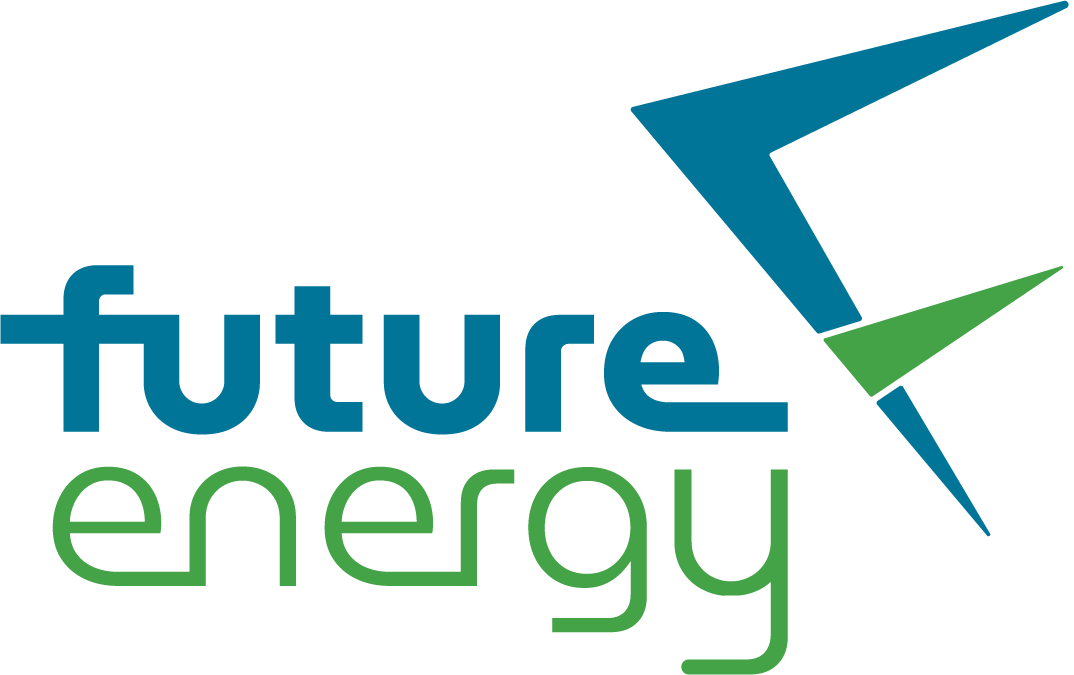TECHNOLOGY SUPPORTING A CIRCULAR ECONOMY
FEA aims to commercialise in Australia and scale-up technology that is a leader in achieving the transition to a lower-carbon economy.
FEA’s first project will produce renewable fuel and other valuable by-products from lignocellulosic materials.
Our renewable diesel is produced predominantly from sustainably sourced biomass. The lignocellulosic materials are being sourced from forestry waste including fire-affected biomass, construction and demolition or agricultural waste streams. FEA will be supporting the production of energy crops that help deliver more sustainable and better ecological outcomes for landholders.
The process produces syngas through a high-temperature pyrolysis process (1100°C) in the absence of oxygen and also produces high-quality biochar. The syngas is further processed and distilled to produce renewable diesel. Valuable by-products produced include high-quality, graphene-rich biochar, wood vinegar, water and heat.

OUR BIOREFINERY PROCESS


WHAT SETS US APART
HIGH-TEMPERATURE PYROLYSIS
Our pyrolysis process is conducted at up to 1100°C in the absence of oxygen, producing syngas and high-quality biochar. The syngas is further processed and distilled to produce renewable diesel.
The absence of oxygen in our renewable diesel allows it to be used as a replacement for traditional diesel without the requirement to upgrade machinery.
Our syngas offers an alternative path to product hydrogen.
SUSTAINABLY SOURCED BIOMASS
Lignocellulosic materials are sourced from forestry waste, including fire-affected biomass, construction and demolition or agricultural waste streams.
FEA supports the production of energy crops that help deliver more sustainable and better ecological outcomes for landholders.
VALUABLE BY-PRODUCTS
High-quality, graphene-rich biochar, wood vinegar, water and heat are all valuable by-products that feed into a circular economy.

SUPERIOR ECONOMIC, SOCIAL AND ENVIRONMENTAL IMPACT
FEA is providing regional Australia the opportunity to achieve fuel security and reduce the reliance on imported fuel. Our process supports an innovative circular economy and ensures that each tonne of biomass achieves the highest potential economic, social and environmental outcomes for each region.
In addition to providing the best value add from existing biomass resources, FEA aims to work with farmers, forestry companies and carbon project developers to support the energy crops that are complementary to food production and support the restoration of the landscape.

LOW CARBON FUEL


SOCIAL, ECONOMIC AND ENVIRONMENTAL BENEFITS
FUEL SECURITY
A product produced in Western Australia guarantees supply for local uses.
CARBON REDUCTION
Offsets up to 85,000 tonnes of carbon per annum per project. Avoids current practice of burning or exporting biomass.
DECARBONISE OPERATIONS
18 million litres per annum per project of drop-in-capable renewable fuel, helping businesses and government reduce carbon footprint without needing to modify existing infrastructure.
REDUCED TRANSPORT COSTS
Each project requires just 50-55,000 dry tonnes per annum of biomass and can be located close to the biomass source.
CIRCULAR ECONOMY
Investment in the first project sparks a fully sustainable and local circular economy project, creating around 120 direct and indirect jobs.
VALUE-ADDED BY-PRODUCTS
An estimated 8,300 tonnes of biochar and 6 million litres of wood vinegar per project per annum.
SCALABLE & REPLICABLE
Modular design is fully scalable with to suit biomass resources.

© 2021 Future Energy Australia | Site by Gumfire | Privacy Policy | Terms and Conditions


